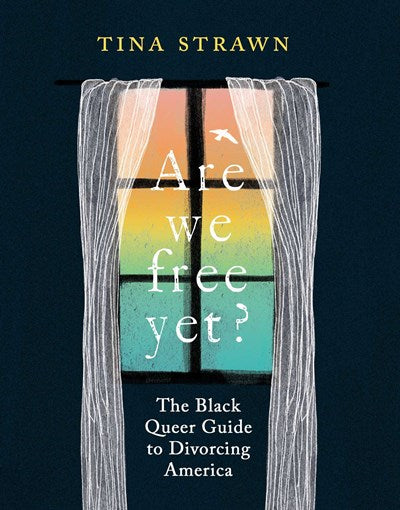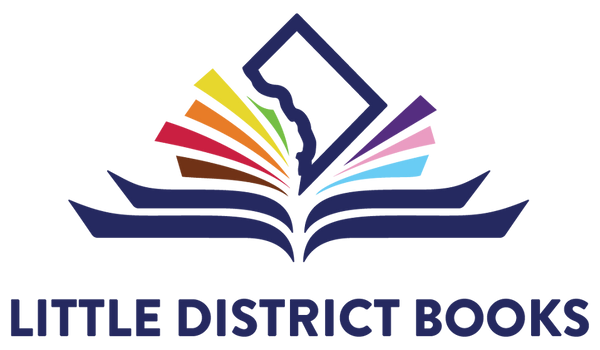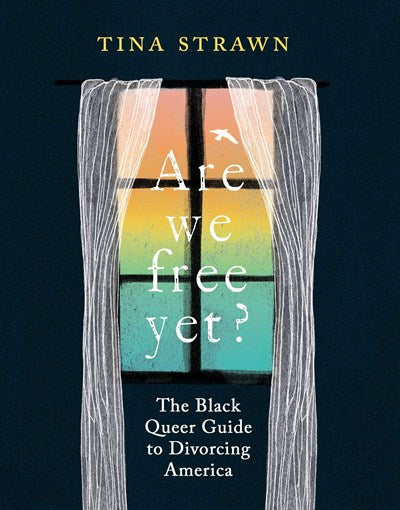1
/
of
1
Are We Free Yet? : The Black Queer Guide to Divorcing America
Are We Free Yet? : The Black Queer Guide to Divorcing America
Regular price
$18.99
Regular price
Sale price
$18.99
Quantity
Couldn't load pickup availability
By Tina Strawn
Are We Free Yet? The Black Queer Guide to Divorcing America is simultaneously a personal reflection and a collective examination of our relationship to liberation and oppression.
In it, Tina Strawn, host of the Speaking of Racism podcast and Instagram platform of the same name, shares her intimate experiences of queerness and Blackness, heartbreak and loss, foreign and home, as she navigates and finds freedom.
Alongside Tina's personal journey through a year of challenging transitions, Are We Free Yet? offers an interactive guide to four pillars of activism: joy, liberation, pleasure, and connection.
From the role of cannabis to the importance of embracing our grief, this book offers a critical take on all it means to be an activist, offering deep reflection and discussions on race, social change, sex, and healing.
Divorce expert (divorced from a husband, a wife, and a country) and author Tina Strawn will challenge readers to:
In it, Tina Strawn, host of the Speaking of Racism podcast and Instagram platform of the same name, shares her intimate experiences of queerness and Blackness, heartbreak and loss, foreign and home, as she navigates and finds freedom.
Alongside Tina's personal journey through a year of challenging transitions, Are We Free Yet? offers an interactive guide to four pillars of activism: joy, liberation, pleasure, and connection.
From the role of cannabis to the importance of embracing our grief, this book offers a critical take on all it means to be an activist, offering deep reflection and discussions on race, social change, sex, and healing.
Divorce expert (divorced from a husband, a wife, and a country) and author Tina Strawn will challenge readers to:
- Question what freedom means and looks like in their lives. How does freedom show up daily? Look at this from a personal and collective place, as well as socially and politically. What are some of the barriers in their life to feeling free? For Black folx, a barrier to feeling free might be the looming threat of police brutality or not feeling like they could leave the country if they wanted to. The book should cause the reader to ask themselves: "How free do I actually feel?"
- Consider what leaving the country could look like for them. "Before reading this book, I never even allowed myself to fantasize or think about leaving the country. After reading this book, I am ready to ask myself if I want that maybe start pursuing steps to Blaxit or leave the country.
- See themselves (their preferences, personality traits, and biases) in their activism. When we say "do the work," there's an element that involves unpacking our biases. "Doing the work" means unpacking our relationship to systems and looking at them from an oppression standpoint versus one of liberation. The reader will examine their internal experience with systems and institutions (white supremacy, capitalism, the patriarchy, marriage, monogamy, gender/sexuality, etc.) and how they might be applying those principles--consciously or unconsciously--to aspects of their lives.
- Deeply investigate what it means to them to be an American and to love or not love "your" country. Has reading Are We Free Yet? opened up and expanded their understanding of being a citizen of this country? What does it mean to be an American? What does it look like to have a relationship with the United States? What would they say in their divorce letter to America if they were to write one?


